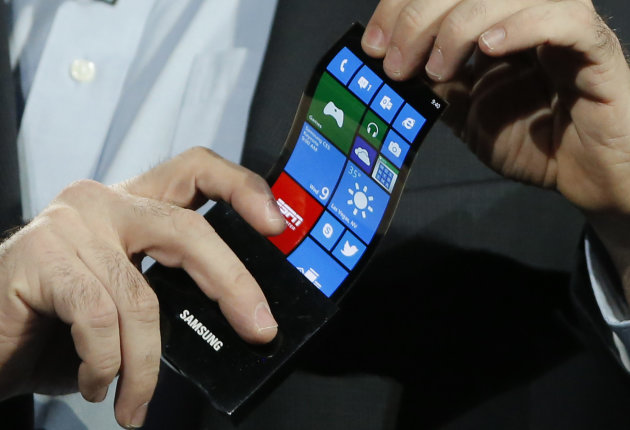 A towering red dust storm gathers over the ocean, ahead of a cyclone approaching Onslow, West Australia, on January 9. The remarkable photo was captured by tug boat worker Brett Martin, 25 nautical miles from the town of Onslow.  Killer whales surface through a breathing hole on January 9. The creatures were trapped under sea ice in Canada's Hudson Bay. Up to a dozen whales were feared to be stuck, however winds later pushed the ice away from the coast.  Snowfall at the ruins of the Roman Temple of Bacchus in the historic town of Baalbek in eastern Lebanon on January 10. An unusual chill swept across the Middle East recently, bringing heavy snow and freezing conditions in Israel, Lebanon, Jordan, Turkey, Syria and Palestine. The weather has claimed at least 17 lives across the region.  A twilight view of London from the top of the Shard, the tallest building in western Europe. The skyscraper, which is 1,013ft tall, opens to the public on February 1. Visitors will be able to reach the 72nd floor of the 78 floor building.  Unexplained readings from the Cassini probe, which orbits Saturn, hint that blocks of ice might bob on the surface of the lakes of liquid methane on Titan. NASA believes that life could lurk in the ice - but it would be very different from life on Earth as the lakes are composed entirely of liquid ethane and methane.  Photographer Reinhard Dirscherl took this extraordinary snap of a whale shark, which looks like it is about to eat a diver in Indonesia. The 47,000lb shark is not dangerous to humans, instead preferring to snack on plankton. |
Ads
Pictures of the week: From stunning cyclones to a 'labradoodle lion'
3:01 AM | 0 Comments
Samsung shows off 'unbreakable' phone which rolls up like paper
The screen uses the same OLED - organic LED - technology as many current smartphones, but encased in plastic instead of glass. Samsung wowed an audience in Las Vegas this week with a working mobile phone screen which can be rolled and unrolled like a sheet of paper. The device was shown off by Brian Berkeley, senior vice-president of Samsung Display, at a presentation at the Consumer Electronics Show in Las Vegas. "Our team was able to make a high resolution display on extremely thin plastic instead of glass, so it won't break even if it's dropped," said Berkeley.
|
12:06 AM | 0 Comments
Kick your food waste habits
Oi, lady! If it won't fit in your fridge, stick it back on the shelf Half the world's food never makes it to our plate, with two billion tonnes binned due to bad storage, confusion over sell-by dates, supermarket bulk-buying offers and aesthetic imperfections. A new study by the Institution of Mechanical Engineers highlights the shocking levels of food that are grown then discarded across the world. Wastage in the developing world occurs early in the supply chain due to poor engineering and agricultural practices, inadequate transport and storage infrastructure. But in Europe, America and other developed nations, perfectly edible foods are discarded because of supermarket marketing strategies and consumer behaviour. To put it simply, imperfect food is thrown away before it even makes it to the supermarket shelves, and shoppers are bad at making best use of the food we buy. The report found that 30% of the UK's vegetables don't make it into our stores simply because they don't look right. Many farmers also over-produce to meet supply agreements with supermarkets. Dr Fox, head of energy and environment at the Institution of Mechanical Engineers, explains, 'With the shift away from small shops on the High Street to large-scale supermarkets, we have lost the sense of value of food.' Not only are throw-away levels a waste of food - the average household shells out £480 a year on groceries that are never eaten - but they are helping drain the world's energy sources too. For example, 550 billion cubic metres of water are used to grow food that is never consumed. Time to take action! By thinking carefully before you buy and also cooking smart, you can become more economic, efficient and help prevent global wastage - as well as save yourself money on your shopping bill. 'Governments, development agencies and organisation must work together to help change people's mindsets on waste and discourage wasteful practices by farmers, food producers, supermarkets and consumers,' says Dr Fox. How to avoid waste1. Check sell-by dates: Plan your meals properly to avoid tossing away food that's past its sell-by date. Make a list of meals for the week ahead and buy just what you need. If you live alone and find that multi-packs are simply too large for your needs, divide them and freeze what you don't need immediately. 2. Shop smart: Don't be fooled by marketing ploys and stack your fridge with foods you won't eat, just because you found a good deal. If you are tempted by a buy-one-get-one-freedeal, be sure it's something you will actually use and freeze the second item on the day you purchase it. Alternatively, go halves with a friend to split the cost - and the saving. 3. Control portions: Don't let your eyes rule your belly. Plan to clear your plate without overeating. If you've made too much, think about packing it up and enjoying it at your desk for lunch the next day. Or freeze extra portions for days when you're too busy to cook from scratch. Left-over cooked veg can be the basis for a healthy homemade broth or add extra nutrition to a pasta sauce. Cut a loaf in half on the day you buy it and freeze the half you don't need immediately. 4. Go local: Getting your groceries from small independent stores will not only help you avoid tempting offers, you'll also find they stock the misshapen squash and less-than-perfect pumpkins that supermarkets refuse to sell. |
12:05 AM | 0 Comments
